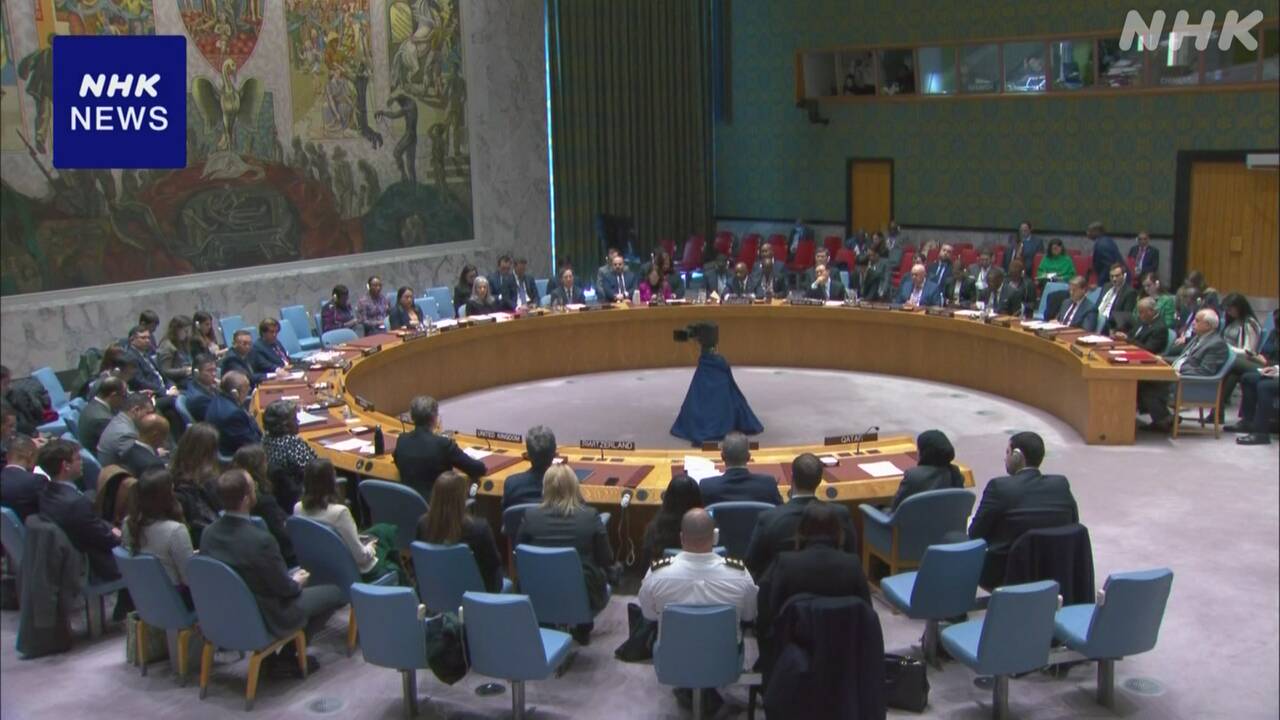The Israeli military is poised to carry out ground operations in Rafah, the southern part of the Gaza Strip, where nearly 1.5 million people, including refugees, live. Amid the threat of further civilian casualties, the United Nations Security Council voted on a resolution calling for an immediate ceasefire for humanitarian purposes, but the United States once again used its veto and the resolution was rejected. It was rejected.
The Israeli military remains committed to carrying out ground operations in Rafah, the southern part of the Gaza Strip, where nearly 1.5 million people, including refugees, live.
Former Defense Minister Gantz, who is in Israel's wartime cabinet, said on the 18th that if Hamas does not release all the hostages by Ramadan, the fasting month in which Muslims abstain from eating and drinking during the day, which begins around March 10th, But we will attack."
Meanwhile, in Khan Yunis, also north of Rafah in the south, Israeli forces continue to carry out heavy attacks.
On the 20th, the World Health Organization (WHO) released a video showing the evacuation of some patients from Nasser Hospital in Khan Yunis, where the Israeli military conducted a military operation, and appealed to the plight of the situation there.
According to the WHO, there are still patients and injured people left at Nasser Hospital, but the power has been cut off and oxygen cannot be supplied to patients, and medical waste and other garbage is scattered about.
Amid the threat of further civilian casualties if ground operations against Rafah were to proceed in the future, the United Nations Security Council voted on a resolution calling for an immediate ceasefire for humanitarian purposes.
Thirteen countries, including Japan, voted in favor of the resolution, but the United States, which supports Israel, once again exercised its veto power, citing ongoing diplomatic negotiations over issues such as a cessation of hostages and the release of hostages, and the resolution was rejected. Ta.
The future of negotiations regarding a cessation of fighting between Israel and the Islamic organization Hamas remains uncertain, and there are concerns that the humanitarian situation will further deteriorate.
Chief Cabinet Secretary: “We will continue to push hard”
At a press conference on the morning of the 21st, Chief Cabinet Secretary Hayashi said, ``Despite various diplomatic efforts, it is unfortunate that we were unable to reach an agreement.'' We hope that this will come to fruition, and as a country we have made a comprehensive judgment and voted in favor of it."
When asked by reporters, ``What do you think of the United States' exercise of its veto?'' he answered, ``I believe that the United States and other countries are making vigorous diplomatic efforts to immediately release the hostages and improve the humanitarian situation.'' "We will continue to actively and persistently approach relevant countries from the perspective of what is a realistic approach."

